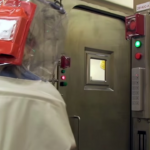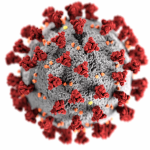Opportunities to improve the bioweapons regime
By Malcolm Dando | February 4, 2009
In the February 2009 Jane’s Intelligence Review, Richard Weitz, director of the Centre for Political-Military Analysis at the Hudson Institute, assessed the current status of the chemical and biological nonproliferation regime. After considering the outcomes of the annual meetings of the Chemical Weapons Convention (CWC) and Biological and Toxin Weapons Convention (BWC), which took place in December 2008, Weitz concluded that in 2009 these treaties would be challenged in many of the same ways they were in 2008. Chief among these challenges: “The continuing non-membership of countries thought to possess weapons of mass destruction, incomplete compliance with the conventions’ provisions, disputes over the sharing of dual-use technologies, and concerns that future scientific developments could increase the risks of biological and chemical proliferation and terrorism.” These don’t present “existential threats,” Weitz said, but “failure to effectively implement the provisions of the conventions or agree to verification and enforcement measures could undermine the probability of long-term adherence.”
Those of us who want to see the BWC strengthened at the 2011 Review Conference need to begin our work in earnest now. We have to research, publish, and discuss which elements of the convention need strengthening and how best to do this.”
I agree with this assessment, but I am left to wonder what might be done to address the challenges that Weitz outlined? Both the BWC and the CWC rely on review conferences held every five years to ensure that the agreements continue to meet developing proliferation challenges. The Third Review Conference of the CWC is scheduled for 2013 and the Seventh Review Conference of the BTWC is scheduled for 2011. Making the best use of the review conference process, however, entails a willingness to cooperate to address emerging challenges, a sentiment that has been in short supply of late. The election of Barack Obama as president of the United States may change that.
While the new U.S. administration has primarily focused on nuclear arms control, it does appear that multilateralism in general is back in some favor in Washington. The desperate days of 2001 when U.S. Amb. Donald Mahley wrote off a decade’s work on the BWC’s verification protocol and John Bolton tried to remove the mandate of the agreement’s Ad Hoc Group may indeed be a nightmare of the distant past. Yet some analysts who monitor these subjects are pessimistic about a complete reversal of U.S. policy regarding the BWC.
I’d like to play the optimist and suggest remembering that the official U.S. policy regarding the BWC in 2001 did not reflect a unanimous view within the government. As Ken Ward, the deputy head of the U.S. delegation to the BWC Ad Hoc Group negotiations from 1995 to 2001, pointed out in his illuminating insider’s account, the U.S. government was discussing two competing verification models prior to the 2001 debacle: one based on what had recently been agreed for the CWC and one that saw this as a false analogy. This internal division, and a lack of U.S. leadership, is what ultimately led to the failure. I argued the same point in my 2002 book, Preventing Biological Warfare: The Failure of American Leadership, and I see no reason to change my opinion now.
Perhaps “friends of the convention” can hope to see a major change in U.S. policy toward the BWC when, and only when, the Obama administration turns its attention to this crucial part of the multilateral arms control agenda. Yet given the previous support from some members of the U.S. bureaucracy, why should we not be optimistic in these new times and prepare for a major change in U.S. policy? To my mind, those of us who want to see the BWC strengthened at the 2011 Review Conference need to begin our work in earnest now. We have to research, publish, and discuss which elements of the convention need strengthening and how best to do this. Swiss officials have argued for early action in a series of papers on how confidence-building measures (annual data exchanges) ought to be improved. And Graham Pearson, the former director-general of the British chemical and biological weapons directorate, has argued that the Swiss approach provides “an excellent model” for others wishing to make progress on different issues at the review conference. Pearson also notes that it is necessary to prepare the groundwork for the conference now to ensure that all parties have a common understanding of the problems facing the convention.
Two other points immediately come to my mind that may be useful at this stage. Firstly, as the foremost historian of the BWC, Nicholas Sims, has consistently argued, the BWC will be strongest if it evolves in a balanced manner. The convention embodies four separate regimes, argues Sims: compliance, development, permanence, and research. A secure and strong prohibition against biological weapons will come into being only when each of these four is given adequate attention. The growing convergence of chemistry and biology also demands that we address the overlap of the BWC and the CWC in regard to toxins, including bioregulators, to ensure that a gap doesn’t form between the conventions.
Secondly, a range of possible solutions–from the minimalist, through the pragmatic, to the idealistic–have already been developed to address the challenges referred to by Weitz. These solutions need to be set out and openly discussed by civil society as well as by government officials. But we should keep an open mind to novel solutions to the impasses that have blocked progress in the past.
For example, in the lead-up to the ill-fated 2001 review conference, Sims put forward the idea of establishing a “committee of oversight” for the BWC that would help to compensate for its organizational deficiencies. According to the proposal, the committee would be headed by the chairman of the review conference, would run through the following review, and would be supported by a scientific and legal panel. Unfortunately, the proposal, which included a detailed draft mandate for the committee, was lost along with much else in the chaos of that meeting. But it might be worth looking at this suggestion again, as economic difficulties may make states reluctant to invest in an expansion of the Implementation Support Unit in 2011. Indeed this particular example might serve as a model for solutions to other outstanding convention issues.
To get to these solutions, we can’t hesitate to stick by our principles, and we can’t be afraid to mention the idea of verification. The BWC needs a strong mechanism to provide assurance that States Parties are living up to their obligations. In short, we need a verification protocol. This subject led to the unravelling of negotiations in 2001, but instituting means to verify BWC declarations would go a long way toward shoring up long-term adherence to the convention.
Together, we make the world safer.
The Bulletin elevates expert voices above the noise. But as an independent nonprofit organization, our operations depend on the support of readers like you. Help us continue to deliver quality journalism that holds leaders accountable. Your support of our work at any level is important. In return, we promise our coverage will be understandable, influential, vigilant, solution-oriented, and fair-minded. Together we can make a difference.
Topics: Biosecurity, Columnists














